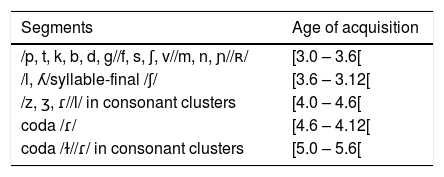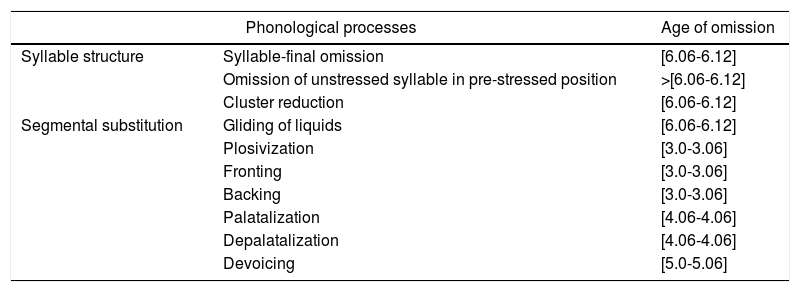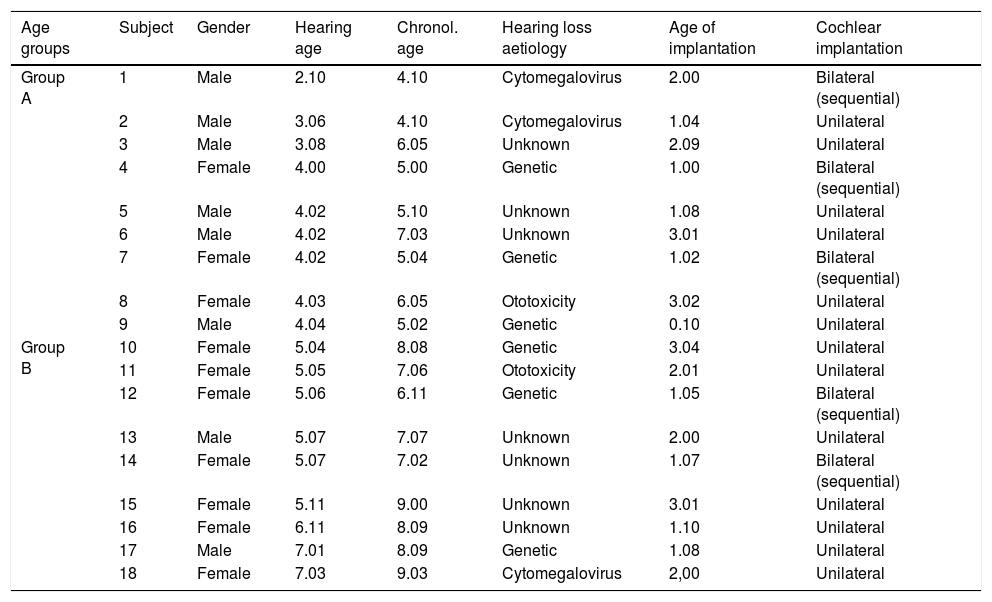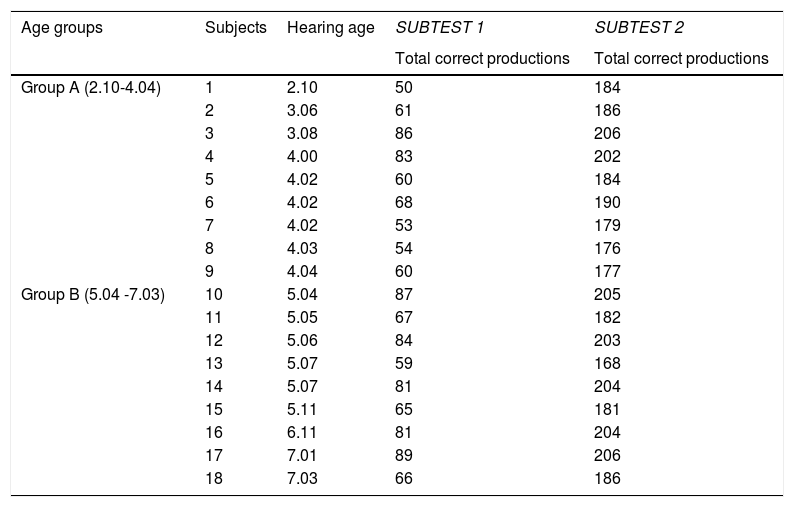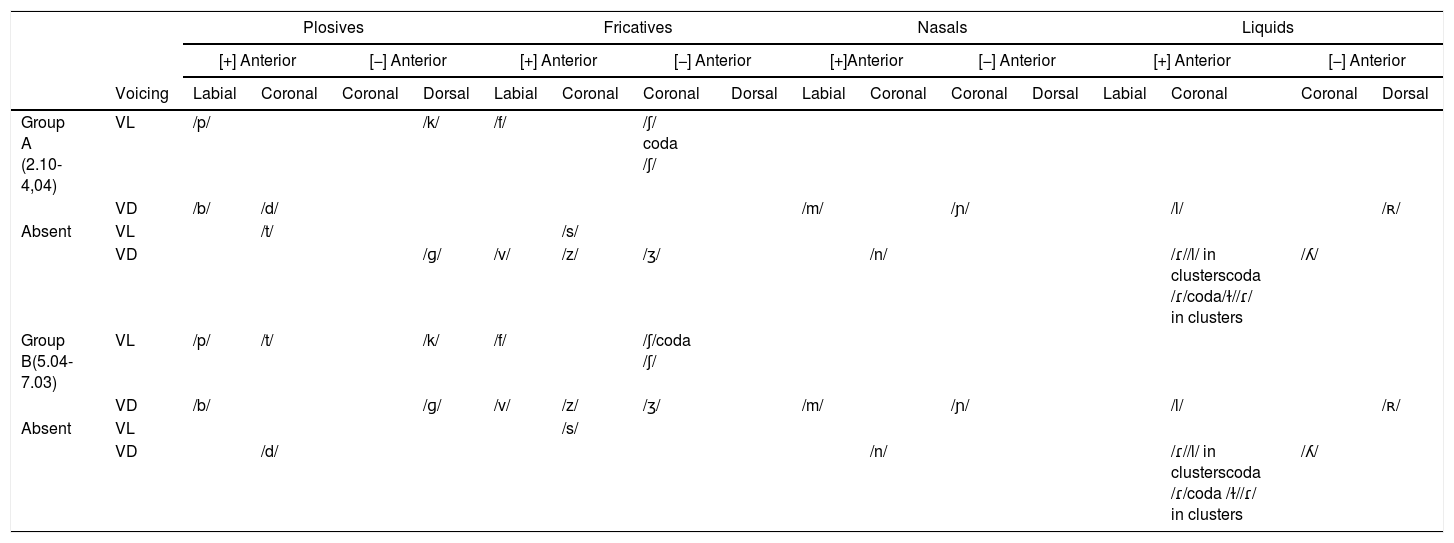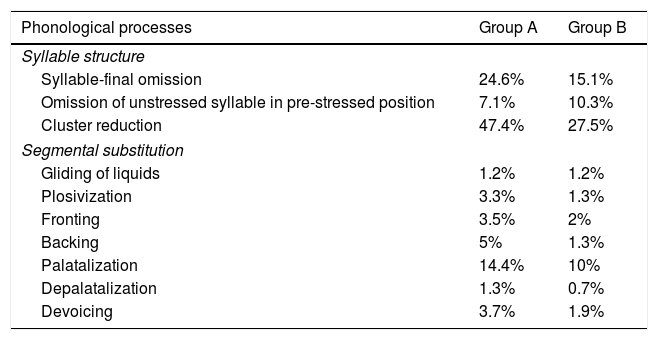Children with severe to profound sensorineural hearing loss and prelingual onset of deafness exhibit less linguistic skills and poorer academic achievements when compared with their hearing peers. Recent studies show that cochlear implants may promote language development in this paediatric population, although phonological development does not always follow the patterns attested for typically developing children.
Aim and methodThe present study aims at describing the phonetic properties of segments and the phonological processes produced by 18 deaf Portuguese children with more than 2.0 years of implant use, divided into two groups according of their hearing age (A=2.10-4.04 and B=5.04-7.03) For this purpose, we used a formal articulation test validated for the Portuguese population.
ResultsResults show that Group B, with a higher hearing age, exhibit a consonant repertoire more complete than Group A, whose hearing age was lower. Syllable and segmental difficulties tend to persist over a long period of time, even after 4 years of implant experience (i.e. hearing age).
DiscussionThe children's consonant repertoire of plosives and fricatives seems to take longer to establish in deaf children with cochlear implants than in their Portuguese hearing peer; other phonological patterns found in the data show an immature phonological development (e.g. syllable omission and onset deletion); these results match the ones reported for other languages in other studies on cochlear implanted children.
Los niños con un nivel de hipoacusia neurosensitiva entre intensa y profunda, y en fases iniciales de sordera prelocutiva presentan conocimientos lingüísticos y resultados académicos inferiores en relación con otros niños de su misma edad con un cuadro auditivo normal. Estudios recientes muestran que los implantes cocleares pueden promover el desarrollo lingüístico de este segmento pediátrico, aun cuando el desarrollo fonológico no siempre siga la progresión estándar que se observa en niños con una evolución prototípica.
Objetivo y metodologíaEste estudio tiene como objetivo describir las propiedades de los segmentos fonéticos y de las pautas fonológicas producidos por 18 niños sordos portugueses con más de 2 años de experiencia con el implante coclear, divididos en dos cohortes en función del tiempo que han utilizado este tipo de implantes (A = 2.10-4.04 y B = 5.04-7.03). Con este propósito nos hemos servido de una prueba de articulación formal validada para hablantes portugueses.
ResultadosLos resultados muestran que el grupo B, con mayor edad auditiva, presenta un repertorio de consonantes más completo que el grupo A. Las dificultades en la producción de sílabas y segmentos suelen persistir durante un largo período de tiempo, incluso después de los 4 años de experiencia con el implante, es decir, con 4 años de edad auditiva.
DiscusiónAl parecer, el repertorio de consonantes obstruyentes (oclusivas y fricativas) tarda más tiempo en establecerse en niños sordos con implantes cocleares que en niños con audición normal. Los datos obtenidos revelan, además, pautas propias de un desarrollo fonológico inmaduro (p. ej., omisión total de sílabas y omisión de ataques silábicos); los resultados coinciden así con los que arrojan varios estudios sobre niños de otras lenguas que llevan también implante coclear.






